The competition for commercial truck accident clients has never been tougher. These days, more people than ever are searching online for legal help, and personal injury firms are fighting hard to be the name people associate with effective legal representation when it comes to commercial truck crash disputes. Law firms are seeking more clients and higher-value cases involving large commercial trucks, making it crucial to stand out in search results. For attorneys handling these types of cases, mastering commercial truck crash legal SEO isn’t just an optional “nice-to-have” anymore. It’s the foundation of a sustainable digital marketing strategy that can consistently bring high-value leads to your firm.
Curious how to grow your personal injury firm in this hyper-competitive environment? Keep reading for a breakdown of how commercial truck crash attorneys can improve their SEO, attract more qualified leads, and secure higher-value cases. We’ll cover everything from keyword targeting to local optimization and content strategies that drive visibility while keeping your firm’s marketing focused on results.
Why SEO Matters for Truck Crash Attorneys
Commercial truck accident cases are quite a bit different from the more “bog standard” personal injury or auto accident claims. They’re often more complex. For example, you might have the opportunity to bring in defendants with deeper pockets, like the employer of the negligent defendant-driver, a maintenance subcontractor whose employees failed to implement proper inspection protocols for a semitruck fleet, trucking companies responsible for compliance with federal regulations, or even the insurance company defending negligent parties. Business defendants and the multiple parties involved mean more leverage during settlement negotiations, and their deeper pockets mean that you can claim your client’s damages in full.
That being said, it also means the competition to acquire these cases online is intense. If your law firm isn’t ranking on the first page of search results, you’re losing clients to competitors who are. But SEO isn’t just about driving traffic. It’s about getting the right visitors (people actively searching for attorneys who can handle commercial vehicle claims). By optimizing your site properly and showcasing your legal services, you position your firm as the trusted resource these prospective clients need at a critical time, enabling prospective clients to enter the intake pipeline and potentially convert into actual clients.
Referrals are critical, of course, for building your client network. But these days, referral networks are taking a backseat to effective digital marketing. Since the consolidation/shakeup period of the legal industry post-2009, more and more local and regional firms have expanded their offerings. That makes the pipeline for referrals rather stagnant in comparison to just two decades ago. Firms have to adapt and effectuate proper commercial truck crash legal SEO if they want to prosper in that area. Understanding the parties involved, including the trucking company and their role in compliance and liability, is crucial for effective digital marketing in this space.
Understanding Search Intent for Commercial Truck Accident Leads
One of the most important components of SEO is matching your content to what potential clients are actually searching for. Someone who types “best commercial truck accident lawyer near me” may be at a very different stage of the decision-making process than someone searching “what to do after being hit by a semi-truck.”
Understanding these stages helps you build an SEO strategy that captures leads at every step:
- Informational intent: Prospects searching for informational guidance on issues like “steps to take after a trucking accident.” For example, many users are looking for information on pursuing compensation after a truck accident, including what steps to take and how to deal with insurance companies.
- Comparative intent: People looking for assessment terms like “top truck accident attorneys” or “law firms with trucking experience.”
- Transactional intent: High-purchase-intent leads searching for terms like “hire truck accident lawyer” or “free trucking accident consultation.”
Many users are also searching for a personal injury lawyer or accident lawyers to help them seek compensation for their injuries. Addressing these queries ensures your content aligns with the needs of those pursuing compensation after an accident.
Your site should have content that speaks to each of these stages. When you meet people where they are, you create multiple paths for converting visitors into clients.
Optimizing Your Website for Search Engines and Clients
Search engine optimization today isn’t just about pleasing Google. It’s about creating a user-friendly site experience that also meets technical SEO standards. Here’s where to focus:
Optimize On-Page Elements
Make sure your title tags and meta descriptions are clear, relevant, and include your main keyword. Improving your meta descriptions can increase your click-through rate from search results, making your listings more appealing to users. Use headers (H1, H2, etc.) to organize content and include keywords naturally. For images, always use descriptive alt text that includes relevant keywords—this not only helps with SEO but also improves accessibility for users relying on screen readers.
Optimizing your website in these ways can help your firm attract the right cases and achieve maximum compensation for clients.
Improve Page Speed
Slow-loading websites are a dealbreaker for both clients and search engines. Make sure your pages load in under three seconds by compressing images, cleaning up unused code, and using a reliable hosting provider.
Use Clear, Client-Focused Navigation
Organize your site so visitors can quickly find information about commercial trucking accidents, your attorneys, and next steps for scheduling consultations. Effective SEO also means ensuring that readers stay “on page.” When readers drop off the page, Google (and other search engines) take this as a negative ranking indicator and will dock the search ranking as a result.
Optimize On-Page Elements
- Title tags: Include your primary keywords naturally.
- Meta descriptions: Write compelling summaries to increase click-through rates.
- Header tags: Use H1s and H2s strategically for readability and keyword placement.
- Alt text: Describe images so search engines understand your visual content.
An optimized website not only attracts traffic but also makes visitors more likely to stay, explore, and contact your firm.
Leveraging Local SEO for Commercial Truck Accident Leads
Because trucking accident cases are geographically tied, local SEO is one of the most powerful tools for commercial truck crash attorneys. Local SEO is especially important for cases involving big rigs, tractor-trailers, and other commercial vehicles, as these accidents often involve complex liability issues and significant damage compared to collisions with passenger vehicles. When someone searches “truck accident lawyer in Dallas” or “18-wheeler crash attorney near Houston,” your firm needs to appear at the top.
Examples of location-specific content include: “car accident with a big rig in [City],” “tractor-trailer and passenger vehicles accidents in [City],” or “commercial vehicle crash statistics in [Region].”
Claim and Optimize Your Google Business Profile
Make sure your Google Business Profile (GBP) is complete and accurate. Include:
- Your law firm name, address, and phone number (NAP consistency matters)
- High-quality photos of your office and attorneys
- Practice areas focused on trucking accidents
- Positive reviews from clients
- Updated business hours and contact details
An optimized GBP listing significantly improves your chances of appearing in Google’s “Local Pack” — the map-based results that dominate mobile searches.
Build Consistent Local Citations
Your firm’s name, address, and phone number should match exactly across legal directories, review platforms, and social media. Discrepancies can hurt your local rankings.
Publish Location-Specific Content
Create pages and blog posts targeting specific cities or regions. Examples:
- “Best Commercial Truck Accident Attorneys in Austin”
- “What to Do After an 18-Wheeler Crash in Los Angeles”
- “Car Accident Cases Involving Commercial Vehicles in [City]”
Location-driven content helps Google understand where you operate and connects you with clients in your target area.
Creating High-Value Content That Attracts Clients
Content is still one of the strongest ranking signals in SEO, but not just any content will do. For commercial truck crash attorneys, you need material that establishes authority, builds trust, and educates your audience. It is especially important to address severe injuries and serious injuries in your content, as this attracts clients who have been seriously injured in truck accidents and are seeking legal help.
Here are a few ideas to explore!
Comprehensive Guides
Create lengthy, in-depth resources that answer a range of reader questions, like “The Ultimate Guide to Commercial Truck Accident Claims.” You can cover everything from insurance issues and liability challenges to federal regulations that impact cases.
Case Studies
Show prospects your track record by highlighting successful case outcomes. Without disclosing private details, describe the scenario, your approach, and the result. Depending on your target audience, you can change the narrative and tone of the case study accordingly. For example, if you’re intending to expand your referral network, you may want to write case studies in a more legal-strategy-oriented manner so that other lawyers will be able to make use of the content.
FAQs
Address common client concerns like:
- “Who’s liable in a commercial truck accident?”
- “How long do I have to file a claim?”
- “Do I need a lawyer for an 18-wheeler crash?”
By anticipating client questions, you make your firm a valuable resource and boost your search rankings.
Using Backlinks to Build Authority
Backlinks (links from other reputable websites pointing to yours) remain one of the strongest SEO ranking factors. For trucking accident attorneys, earning backlinks from authoritative sites in the trucking industry and personal injury industry is crucial for building authority and trust. A few high-quality backlinks can make a significant difference.
Ways to Earn Backlinks:
- Partner with local news outlets when cases make headlines (backlinks are expected here).
- Contribute guest articles to various legal industry blogs, which is almost always done in exchange for backlinks.
- Sponsor local events related to road safety or transportation, which could lead to their websites backlinking to your firm’s site.
- List your firm in trusted legal directories.
The goal is to demonstrate to Google that your website is a credible authority in trucking accident law.
Tracking and Measuring Your SEO Performance
SEO isn’t “set it and forget it.” To improve, you need to track your results and adjust your strategy. Use tools like Google Analytics, Google Search Console, or paid platforms to monitor:
- Organic traffic growth
- Keyword rankings for target terms
- Click-through rates (CTR) from search results
- Bounce rates and time on page
- Conversions, consultations, and signed cases
Data-driven decision-making ensures you’re investing in strategies that work and scaling back on those that don’t.
Integrating SEO with Paid Search and Lead Generation
While SEO builds long-term authority, combining it with targeted paid campaigns can accelerate results. Commercial truck crash cases often have high settlement values, making paid ads worthwhile when used strategically.
Integrate your organic and paid strategies by:
- Targeting the same keywords in both SEO and PPC campaigns
- Using retargeting ads for visitors who didn’t contact your firm the first time
- Tracking leads from each channel to measure ROI
This multi-channel approach ensures you’re maximizing visibility wherever potential clients are searching.
Contact Walker Advertising for Help Growing Your Firm’s Client Base
Whether you’re a solo lawyer, or a small firm lawyer — or are part of a larger firm with plans for further expansion — it’s important to grow your client base in order to hit your revenue and client growth goals. Here at Walker Advertising, we can help. We operate a number of popular attorney networks (including our Los Defensores and 1-800-THE-LAW2 brands) through which firms are able to access leads for various legal claims.
The leads we acquire through our various online marketing efforts — from social media marketing to targeted web ads — have been pre-qualified by our team so that you aren’t hassled by a flood of leads that are simply not relevant or actionable for your purposes. By accessing these quality leads, you’ll be well-equipped to select the best ones to grow your firm business.
Best of all, you won’t have to spend your valuable time and effort on building out your online marketing efforts. Don’t worry about SEO optimization, trend analysis, or any other complex marketing issues. Instead, use us to access pre-qualified inbound leads, and focus your limited internal resources on providing quality representation to your existing (and new) client base.
Contact Walker Advertising today to connect to a member of our team who can explain how our legal networks can help your firm business thrive in this ever-changing digital marketing landscape.
We look forward to assisting you.






